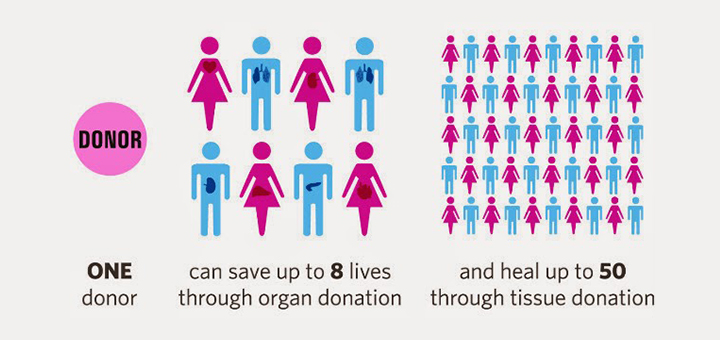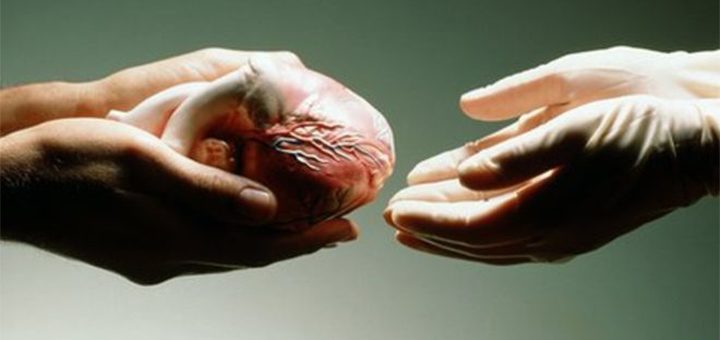What happens when a person dies? Well, they will be either buried beneath the ground, or the body will be burnt. When a corpse is buried six feet deep, under the ground, it will eventually decompose and rot leaving back skeletons in a few years. What happens when a body is burnt? You will be left with the ashes of the person. Wouldn’t it be more worthy if you opt to donate your organs after your death, and save as many as 10 people’s lives?
It’s truly a matter of life and death, for an end stage organ failure patients. The number of patients waiting for an organ transplant is increasing while the actual number of organ donors lags significantly behind. You should value the life of others just as much as you value your life.
Did you know that in every 20 minutes, a person adds to the waiting list for an organ transplant? Did you know that ONE organ donor can save up to 8 lives?
Being an organ donor is a generous gift that can impact and change the lives of so many people. Many people may think that organ donation is only limited to heart, kidney or liver. But, there are plenty of organs and tissues that can be donated to save other lives.
- Organs such as the kidneys, liver, lungs, heart, pancreas, and intestines
- Tissues such as heart valves, skin, bone, and tendons
- Hands and face
- Blood stem cells, cord blood, and bone marrow
- Blood and platelets

You might think that if you choose to donate your organs after death, your doctors will not try hard to save your life. The truth is:
For deceased donation, the person should be announced brain dead by the doctors after trying all kinds of means to save the donor’s life. The doctor cannot donate your organs if you are in a stage of coma, as you have a chance to revive. The body must be preserved and has to be kept on ventilator after death, in order to remove the required organs from the body.
Who Can Donate an Organ?
A medical assessment and complete evaluation will be conducted after death to determine what organs can be donated. Certain medical conditions like being affected with HIV, cancer or infections, would be excluded from donating an organ.
Age is not a constraint or barrier for organ donation.
Do not disqualify yourself assuming that nobody would want your organs because you’re too old. Eligibility strictly depends on medical criteria.
Talk to your family members regarding your decision on donating your organs after your death. Remember this your decision and don’t let anyone sway that decision.
Sambav encourages everyone to make the right choice by opting to donate your organs after death. Organ donation provides a life-giving, life-enhancing opportunity to those who are at the end of the line for hope. Save lives today! Also, do not forget to check out the Sambav’s Health Wallet App for more interesting health features!





